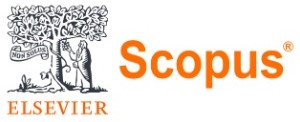Multiplicity and Body Fragmentation in the Digital Era: Body-Subject-Computer Relations in Un mundo huérfano (2016)
Anaís Neira Latorre
Anaís Neira Latorre1
 http://orcid.org/0000-0002-2076-8725
http://orcid.org/0000-0002-2076-8725
1 Pontificia Universidad Católica de Chile, Chile. aineira@uc.cl
ABSTRACT
This article proposes an interpretation of Un mundo huérfano (2016) of Guiseppe Caputo and analyzes the relations between body, subject, and digital world that the text develops. It focusses on cibersexual intercourses, through the prism of posthuman philosophy and the logics of digital culture which establishes a dynamic of mutual influence with subjectivity, transforming sensitive perception and human affections in a constant mutation. In this way, the body takes vital importance to the question about the becoming of hybrid subjectivities, produced by the new agencies between humans and non-humans in informational capitalism. In the novel, we find the representation of a multiple and fragmented body due to the process of digitalization, reflected in the metonymic enunciation and the dehumanization that implies the consumable body arrangement. Thus, new aesthetic forms are revealed that seek the semantic and artistic expression of the effects of digital culture on subjectivity, from the hybrid Latin-American perspective, on the margins of world’s digital technology development centers.
Keywords: digitality; posthumanism; body; subjectivity; Caputo
Received: June 07, 2023; Accepted: June 28, 2023
Keywords:
References: REFERENCIAS
Bartra, R. (2012). La batalla de las ideas y las emociones. En M. Morañae I. M. Sánchez(Eds.), El lenguaje de las emociones. Afecto y cultura en América Latina (pp. 17-36). Iberoamericana. [ Links ]
Bauman, Z. (2005). Amor líquido. Acerca de la fragilidad de los vínculos humanos. Fondo de Cultura Económica. [ Links ]
Berardi, F. (2017). La fenomenología del fin. Sensibilidad y mutación conectiva. Caja Negra. [ Links ]
Bourriaud, N. (2009). Radicante. Adriana Hidalgo. [ Links ]
Braidotti, R. (2015). Lo posthumano. Gedisa. [ Links ]
Caputo, G. (2016). Un mundo huérfano. Penguin Random House. [ Links ]
Colanzi, L. (2017). Of animals, monsters and cyborgs. Alternatives bodies in latin American fiction [Tesis doctoral, Cornell University]. eCommons. https://doi.org/10.7298/X4765C8J [ Links ]
Costa, F. (2021). Tecnoceno. Algoritmos, biohackers y nuevas formas de vida. Taurus. [ Links ]
Cramer, F. (2014). What is ‘post-digital’? A peer-reviewed journal about, 3(1), 10-22. https://doi.org/10.7146/aprja.v3i1.116068 [ Links ]
Deleuze, G. y Guattari, F. (1988). Mil mesetas. Capitalismo y esquizofrenia. Pretextos. [ Links ]
Drucaroff, E. (2015). Otro logos. Signos, discursos, política. Edhasa. [ Links ]
Finn, E. (2018). La búsqueda del algoritmo. Imaginación en la era de la informática. Alpha Decay. [ Links ]
Foucault, M. (1999). Espacios otros. Versión, estudios de comunicación y política, (9), 15-26. https://cutt.ly/97Lsqzq [ Links ]
Haraway, D. (1995). Ciencia, cyborgs y mujeres: La reinvención de la naturaleza. Cátedra. [ Links ]
Machado, A. (2009). El sujeto en la pantalla. La aventura del espectador, del deseo a la acción. Gedisa. [ Links ]
Mattio, E. (noviembre, 2018). Veneno marica: una desarticulación de las economías emocionales homonormativas [Presentación]. 5to Congreso Género y Sociedad: “Desarticular entramados de exclusiones y violencias, tramar emancipaciones colectivas”, Córdoba. https://cutt.ly/C5q8HgQ [ Links ]
Mattio, E. (2022). Trauma marica. El lugar de los afectos en el archivo sexo-disidente. En L. Anapios y C. Hammerschmidt (Coords.), Política, afectos e identidades en América Latina (pp. 317-335). CLACSO. [ Links ]
Moraña, Ma. (2010). La escritura del límite. Iberoamericana. [ Links ]
Patterson, Z. (2004). Going On-Line: Consuming Pornography in the Digital era. En L. Williams (Ed.), Porn studies (pp. 104-123). Duke University. [ Links ]
Pepperell, R. (2003). The Posthuman condition. Consciousness beyond the brain. Intellect Books. [ Links ]
Pepperell, R. y Punt, M. (2000). The postdigital membrane. Imagination, Technology and Desire. Intellect Books. [ Links ]
Peters, M. y Besley, T. (2019). Critical philosophy of the postdigital. Review of Contemporary Philosophy, 18, 64-79. https://doi.org/10.22381/RCP1820193 [ Links ]
Taffel, S. (2016). Perspectives on the postdigital: Beyond rethorics of progress and novelty. Convergence, 22(3), 324-338. https://doi.org/10.1177/1354856514567827 [ Links ]
Wiener, N. (1948). Cybernetics: or Control and Communication in the Animal and the Machine. MIT. [ Links ]
Williams, L. (2004). Porn Studies: Proliferating Pornographies On/Scene: An Introduction. En L. Williams (Ed.), Porn Studies (pp. 1-23). Duke University Press. [ Links ]
1Todas las citas de este texto corresponden al autor (N. del T.).
2Mencionemos aquí los trabajos realizados por Liliana Colanzi (2017), que problematizan la noción de cuerpo en la ficción latinoamericana reciente, los proyectos de cartografías digitales de Carolina Gaínza y Carolina Zúñiga (2018), y la Red de Literatura electrónica latinoamericana (litelat.net), coordinada por Claudia Kozak, entre otros.
3Desde ahora en adelante, UMH.
4Textos como Los cuerpos del verano (2012) de Martin Castagnet, Nefando (2016) de Mónica Ojeda, Mis documentos (2017) de Alejandro Zambra, Kentukis (2018) de Samantha Schweblin o Throguel Online (2020) de Nicolás Meneses, exploran, expanden y dialogan con la cultura digital y los efectos que tienen sobre el sujeto y la sociedad desde el punto de vista del ser latinoamericano en diferentes contextos (como migrante, voz generacional, experimentador de realidades o productores de material digital).
5Drucaroff propone esta distinción desde la determinación negativa porque sería un error distinguir entre mundo real/material en oposición a lo semiótico, ya que ello implica la negación de la materialidad de la dimensión semiótica: lo no semiótico es todo lo demás fuera de lo semiótico.
Este es un artículo publicado en acceso abierto bajo una licencia Creative Commons







